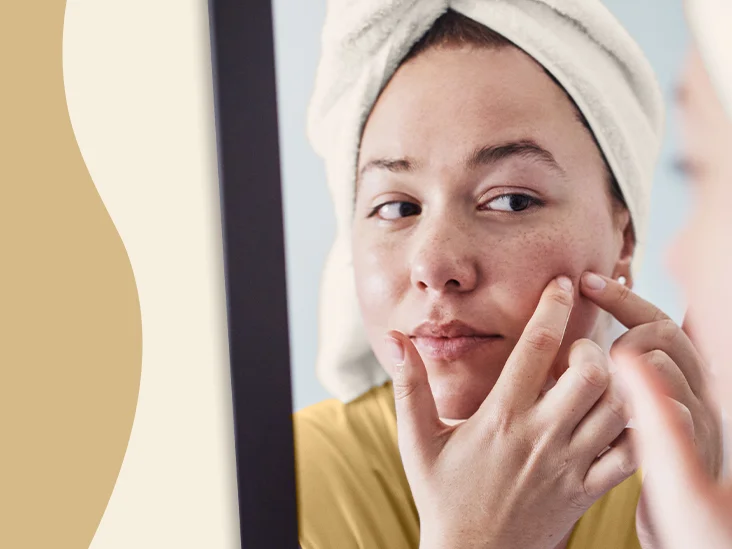When it comes to treating acne, there are countless options available. From natural remedies found in your kitchen to prescription medications provided by a dermatologist, the choices can be overwhelming. But what’s the difference between these approaches, and which one is right for you?
Natural Acne Remedies
Many people turn to natural remedies for acne, hoping to avoid the potential side effects of stronger treatments. Some of the most popular natural remedies include:
- Tea Tree Oil: Known for its antibacterial properties, tea tree oil is often applied to acne spots to reduce inflammation and kill acne-causing bacteria.
- Aloe Vera: The soothing properties of aloe vera are thought to reduce redness and irritation, helping to calm inflamed acne.
- Honey: With natural antibacterial properties, honey is sometimes used as a spot treatment for acne or as a mask to reduce breakouts.
- Apple Cider Vinegar: This is believed to balance the skin’s pH and has antibacterial properties, though its use can irritate sensitive skin.
- Zinc Supplements: Some studies suggest that taking zinc supplements may reduce acne, especially for those with a zinc deficiency.
While these natural remedies may work for mild acne or as part of a skincare routine, they often fall short when it comes to treating more persistent or severe acne. Natural treatments also lack the strong scientific backing that many prescription medications have.
Prescription Acne Treatments
For those with moderate to severe acne, professional treatment from a dermatologist is often the most effective solution. Prescription treatments target the root causes of acne and can provide lasting results. Here are some common options:
- Topical Retinoids: These vitamin A derivatives help to unclog pores and promote cell turnover. They are especially effective for blackheads, whiteheads, and preventing new breakouts.
- Oral and Topical Antibiotics: These medications work to reduce acne-causing bacteria and inflammation. Oral antibiotics are typically used for more widespread or severe acne, while topical antibiotics are often combined with other treatments.
- Benzoyl Peroxide: Available in both prescription and over-the-counter forms, benzoyl peroxide kills bacteria on the skin and helps to prevent clogged pores.
- Hormonal Treatments: For women whose acne is linked to hormonal fluctuations, birth control pills or anti-androgen medications like spironolactone can be effective in controlling breakouts.
- Accutane (Isotretinoin): For the most severe cases of acne, Accutane offers a powerful solution by reducing oil production and shrinking oil glands. It requires close monitoring but can result in long-term remission for many patients.
Why Choose Professional Acne Treatment?
While natural remedies may provide some relief, they are generally not a substitute for medical treatment, especially if your acne is persistent, painful, or leaves scars. Seeking help from a dermatologist like Dr. Lauber at the Advanced Skin Treatment Center of Orange County ensures that you receive a personalized treatment plan designed for your specific skin needs.
Dr. Lauber, located in Newport Beach, CA, can assess the severity of your acne, identify any underlying causes, and recommend the most effective treatment options. Whether it’s prescription-strength medications or professional skincare advice, getting expert help can save you time and frustration, leading to clearer skin faster.
Combining Natural and Prescription Approaches
In some cases, combining natural remedies with prescription treatments may offer the best of both worlds. For example, using soothing natural products like aloe vera alongside prescription treatments can help mitigate some of the dryness or irritation that stronger medications may cause.
However, it’s essential to discuss any natural remedies you’re using with your dermatologist to ensure they won’t interfere with your prescribed treatment plan. At Advanced Skin Treatment Center of Orange County, Dr. Lauber can guide you in creating a comprehensive skincare routine that suits your skin type and acne severity.
When to See a Dermatologist
If you’ve been relying on natural remedies and aren’t seeing results, or if your acne is causing discomfort or scarring, it’s time to see a professional. Ignoring severe acne can lead to long-term damage, including permanent scars. With professional treatment, you can take control of your skin health and prevent further complications.
At the Advanced Skin Treatment Center of Orange County, Dr. Lauber is committed to helping you achieve clear, healthy skin through proven, personalized treatments. Whether you’re dealing with mild acne or severe breakouts, a dermatologist can provide the expertise and care you need.
Conclusion
While natural remedies can offer temporary relief for mild acne, they often aren’t enough for more severe cases. Prescription treatments from a dermatologist, like those provided by Dr. Lauber at the Advanced Skin Treatment Center in Newport Beach, are far more effective in addressing the root causes of acne and achieving long-term results.
Don’t let acne control your life—reach out to a dermatologist and discover the right treatment plan for your skin.

